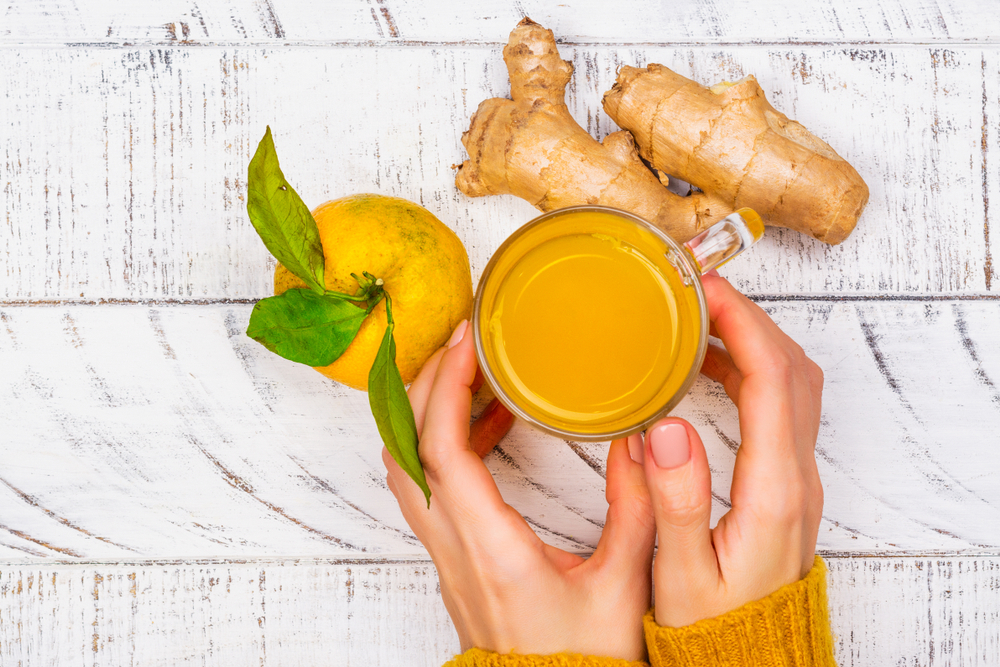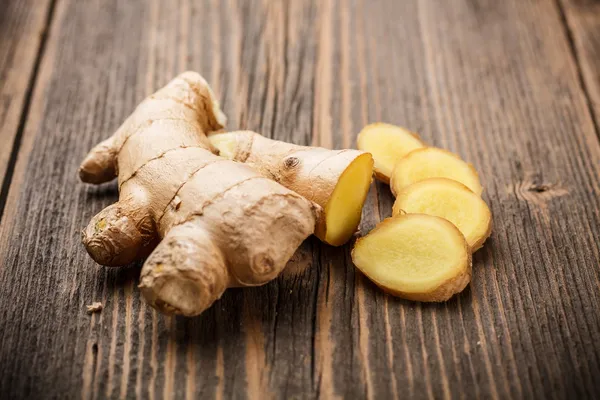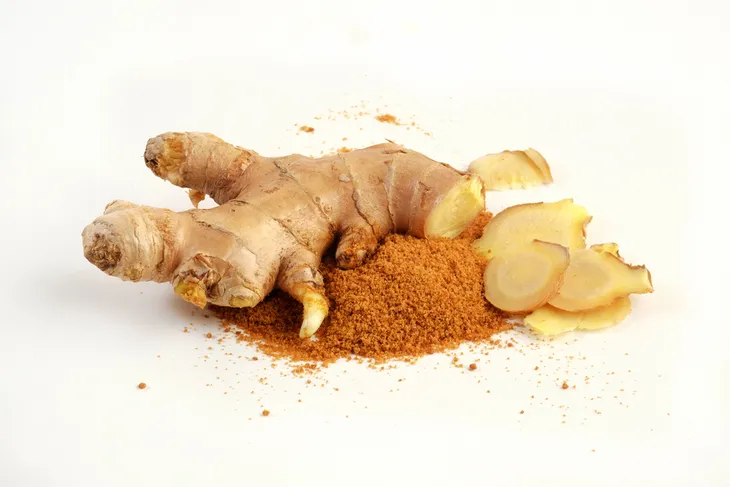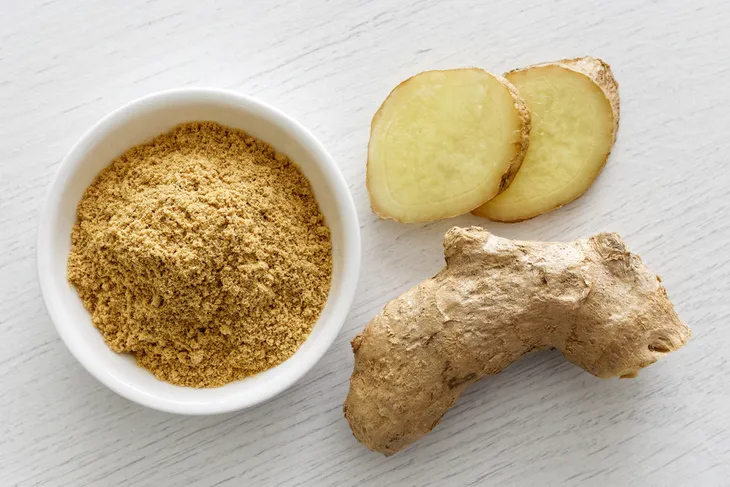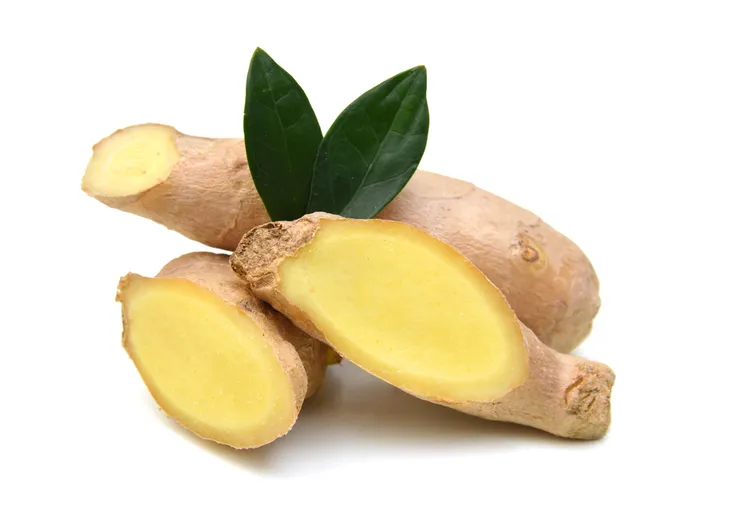There are few spices in the world more useful or beneficial to human health than ginger, a root that’s typically available in most parts of the world at a remarkably affordable price. Belonging to the same family of spice as turmeric, cardamon, and galangal, it shares a tart but widely applicable flavor and a vast range of health benefits.
But what, exactly, can you expect ginger to do in terms of benefitting your overall health picture? In general, consuming ginger on a regular basis means giving your body a shot of nutrients, minerals and bioactive compounds that scientific research has shown can benefit both mind and frame. Now, let’s take a closer look at some of those individual benefits.
Want diet & nutrition content delivered straight to your inbox? Sign up for our exclusive diet & nutrition newsletter!
Reduce Inflammation
The primary bioactive component in ginger, a root that was originally found in China, is gingerol. The main benefit of gingerol, from a physical health perspective, is its demonstrable anti-inflammatory and antioxidant properties, which are capable of helping prevent or fight off a wide variety of infections and threats to the human immune system.
More specifically, any food that is high in anti-inflammatory and antioxidant compounds can play a role in helping the body reduce swelling and prevent the spread of serious illnesses, from cancer to heart disease. That’s why health professionals regularly recommend people add these types of foods to their diet.
Fight Off Nausea
There are few feelings more upsetting than upset stomach and nausea. Whether it’s the result of a bout with influenza, the first few weeks of a pregnancy, or your body showing it’s not pleased with something you ate, nausea can make it impossible to carry out even the simplest of tasks, like getting up and dressed in the morning and leaving home for work. In a search for help with nausea, many of us regularly reach for easily accessible medications like bismuth. But bismuth has its own set of side effects, some of which can be problematic, such as constipation. And, generally speaking, pregnant women are discouraged from taking it.
That’s where a more natural alternative, like ginger, can be really helpful. Ginger has for centuries been used as a way to counteract upset stomach. For ages, it was used by sailors to prevent sea sickness, and by individuals overcoming surgery. Today, it remains in use for individuals dealing with minor nausea — perhaps because of the early stages of pregnancy — to those dealing with serious upset stomach, such as people going through chemotherapy.
Help with Muscle Pain
One of the lesser-known benefits of consuming ginger — whether it’s in root form or powder — is that it can assist in overcoming muscle pain and soreness. Given that these types of pain are incredibly common and stem from a wide range of conditions — from lower back pain to whiplash to pulled groin muscles — there’s definitely a demand for a natural way to deal with the issue.
While more extreme fits of pain often require an individual to take a prescription drug medication, such as codeine, many of these pain medications have serious side effects, including upset stomach and constipation. Ginger is the natural alternative, and while somewhat less immediate in dealing with the pain, it can provide relief without introducing a wide range of nagging side effects. The improvement of these side effects are likely due to the anti-inflammatory effects of ginger.
Help with Osteoarthritis
Arthritis is a problem that affections millions of North Americans, with osteoarthritis being a particularly troublesome issue for women. Related to the progressive degeneration of the body’s joints, it often leads to pain and stiffness that can make any kind of movement incredibly difficult. In extreme cases, it’s enough to prevent individuals from participating in the simple activities they love, from playing with their grandkids to going for walks with friends.
Many individuals with osteoarthritis will reach out to their family doctors, who often respond by prescribing powerful pain medications. But these medications often come with their own side effects, some of which can be as problematic as the arthritis itself. In response, many individuals turn to natural remedies, at the forefront of which is ginger. Thanks to the presence of gingerol, an anti-inflammatory compound, ginger can have a significant impact on the pain and stiffness associated with osteoarthritis. In time, taking ginger on a regular basis could allow an individual to regain flexibility and return to physical activities they’ve come to love.
Prevent Heart Disease
There are few, if any, organs more important than the heart. The engine of our bodies, the heart plays a central role in pumping blood throughout the circulatory system, bringing nutrients to all parts of the body. Unfortunately, there are a growing number of threats to the heart, from personal and professional stress to the regular consumption of high-fat, high-cholesterol foods.
That’s why it’s so important to regularly consume foods that have been shown to assist in preventing the development of heart disease and associated issues, including high blood pressure and high cholesterol. For its part, ginger has been shown to reduce levels of blood and fat in the blood, thereby limiting the chances that obesity and cholesterol will place excessive pressure on the veins, arteries, and heart itself. Overall, ginger’s impact can be a key factor in avoiding the development of heart disease.
Calm Indigestion
Imagine experiencing crippling, burning pain in the lower part of the esophagus and stomach following meals — for individuals with acute indigestion, it’s a part of everyday life, and it can make eating far more of a chore than something to savor. To help with this condition, many people turn to over-the-counter medications like bismuth, but there are actually far more natural alternatives.
Arguably, the best alternative to these kinds of medications — many of which come with their own list of side effects — may be ginger. For centuries, the ginger root has been used to help treat indigestion, largely because it’s been linked with faster emptying of the stomach, which can help calm pain and discomfort in this part of the body following a meal.
Overcome Menstrual Pain
The average woman can expect to experience some discomfort as a result of menstruation roughly once each month for the several decades that make up their fertile years. Unfortunately, for some individuals this discomfort can be crippling, making it difficult to carry out even the simplest of daily tasks, like getting out of bed in the morning.
While there are many pain medications designed to help with menstrual pain and discomfort, a natural solution is ginger. Several studies have shown that consuming ginger can significantly alleviate the pain associated with menstruation, with those taking a gram of ginger powder experiencing pain relief on par with taking a medication like ibuprofen.
Cut Cholesterol
As we age, levels of lipoproteins, or “bad” cholesterol, tend to increase. This places increased pressure on the heart and circulatory system, and if left untreated can lead to serious health problems, including heart attack and stroke. To help with this, many individuals pursue special diets high in foods containing omega-3 fatty acids, which have been shown to help fight inflammation and lower bad cholesterol.
But it’s not just omega-3 fatty acid-heavy foods like flaxseeds, salmon, and walnuts that can help in the fight against cholesterol. Research has shown that individuals who regularly consume ginger can also lower their lipoprotein levels and alleviate pressure on the heart and circulatory system. Just a few grams of ginger powder each day is all that’s required to achieve these results.
Prevent Cancer
Of all the diseases in the world — and there are many — few present the challenges of cancer. That’s why any foods that have been linked to reduced risk of cancer have become mainstays in the diets of individuals hoping to live longer and overcome a family history of cancer.
Ginger can help in the fight against cancer, medical research suggests. Studies have shown that regularly consuming ginger extract can help prevent cancer because one of ginger root’s most active compounds, gingerol, contains cancer-fighting properties. In one study, just two grams of ginger extract each day helped reduce inflammation in the colon, the site of one of the most deadly forms of cancer.
Boost Brain Functionality
Improving brain functionality requires consistent cognitive stimulation, a healthy diet, and regular physical exercise. But our brains face constant challenges from our environment, including a family history of brain-related illness, like Alzheimer’s Disease, and stress.
To combat the decline of cognitive functionality and improve the way our brain works, we can consume foods that fight inflammation, like those with omega-3 fatty acids. But ginger can also help, as it contains its fair share of anti-inflammatory properties and antioxidants. In fact, studies have shown that regularly consuming ginger extract improved reaction time and memory results in older adults, particularly elderly women.
Fight Infection
The bioactive compound found in the ginger root, gingerol, has recently been linked to reduced risk of infection. That’s because gingerol is effective in limiting the growth of bacteria associated with problems in all parts of the body.
In fact, ginger extract has previously been used to help prevent the development of bacteria in the respiratory system, thereby limiting the risk of lung problems like bronchitis. Consuming ginger extract on a regular basis may therefore help individuals with acute respiratory conditions, such as asthma, improve their chances of breathing easily and healthily.
Boost Dental Health
Maintaining dental health can be difficult and expensive, particularly for individuals who don’t have dental insurance through their employer. Among the problems that can arise should one fail to maintain their dental health are gingivitis and periodontitis, conditions than can emerge even if one is vigilant in brushing and flossing their teeth.
Ginger can help in the fight against dental health problems because it’s effective in preventing the growth of many types of bacteria, particularly that associated with gingivitis and periodontitis. Regularly consuming ginger is often recommended to individuals who frequently struggle with these or other dental health concerns.
